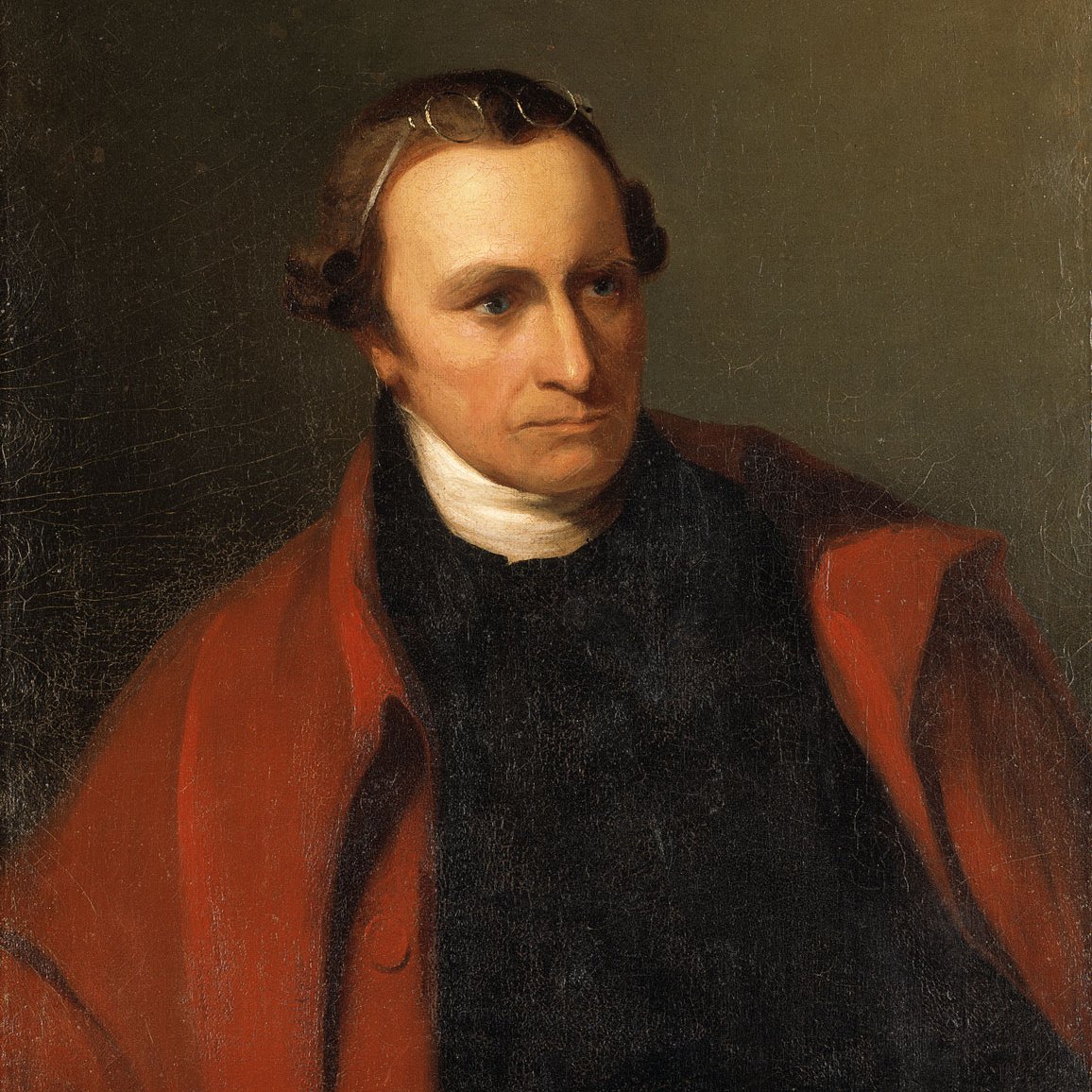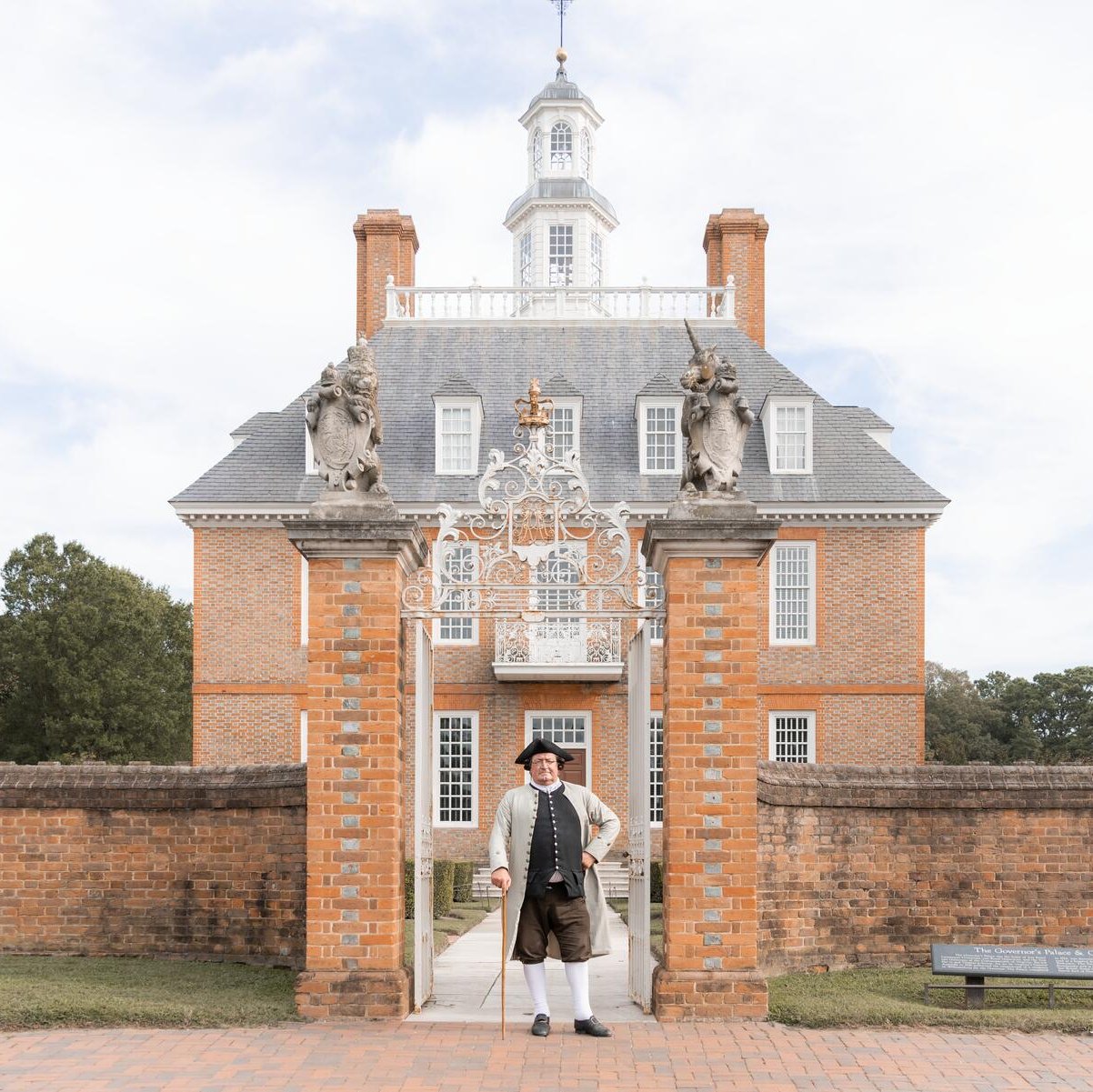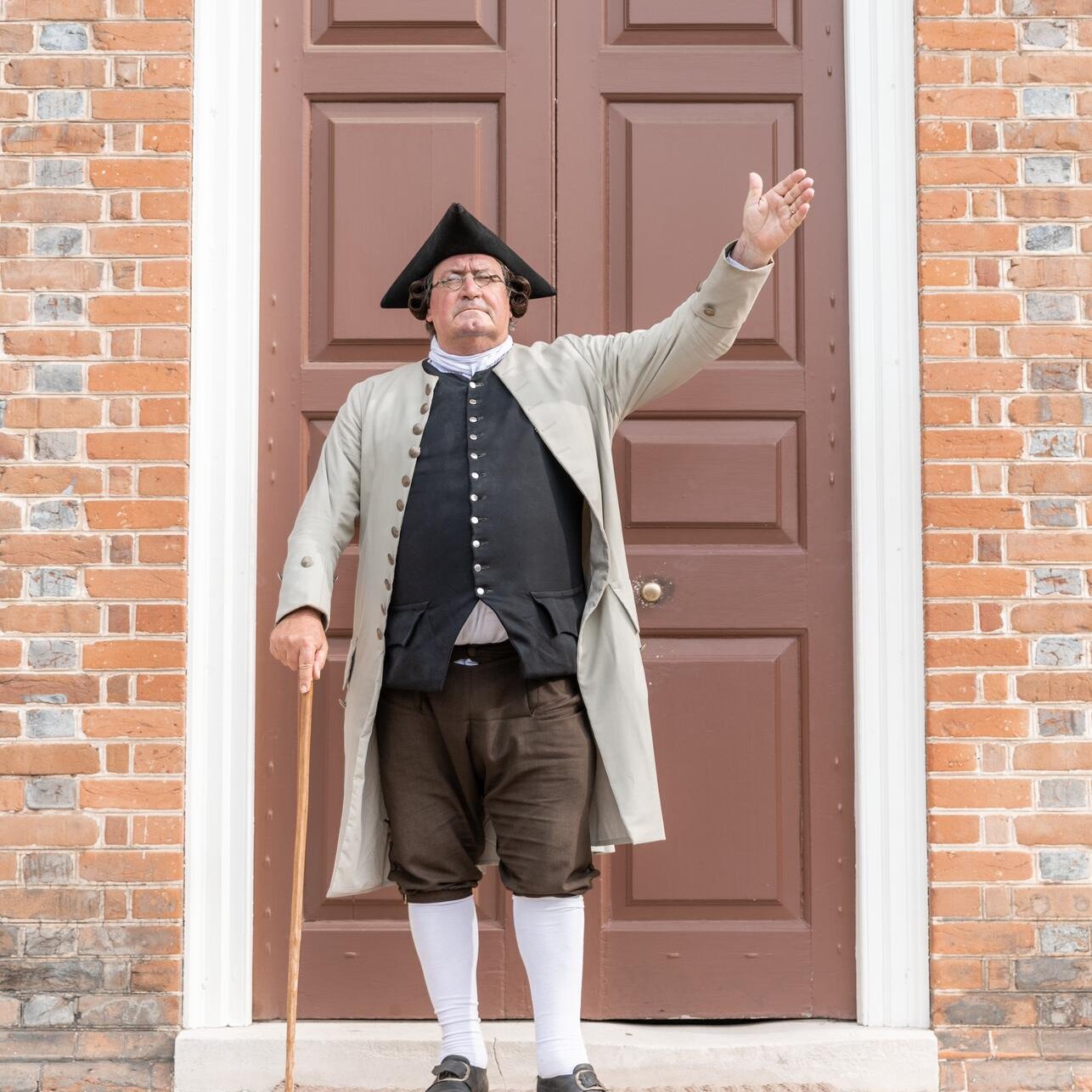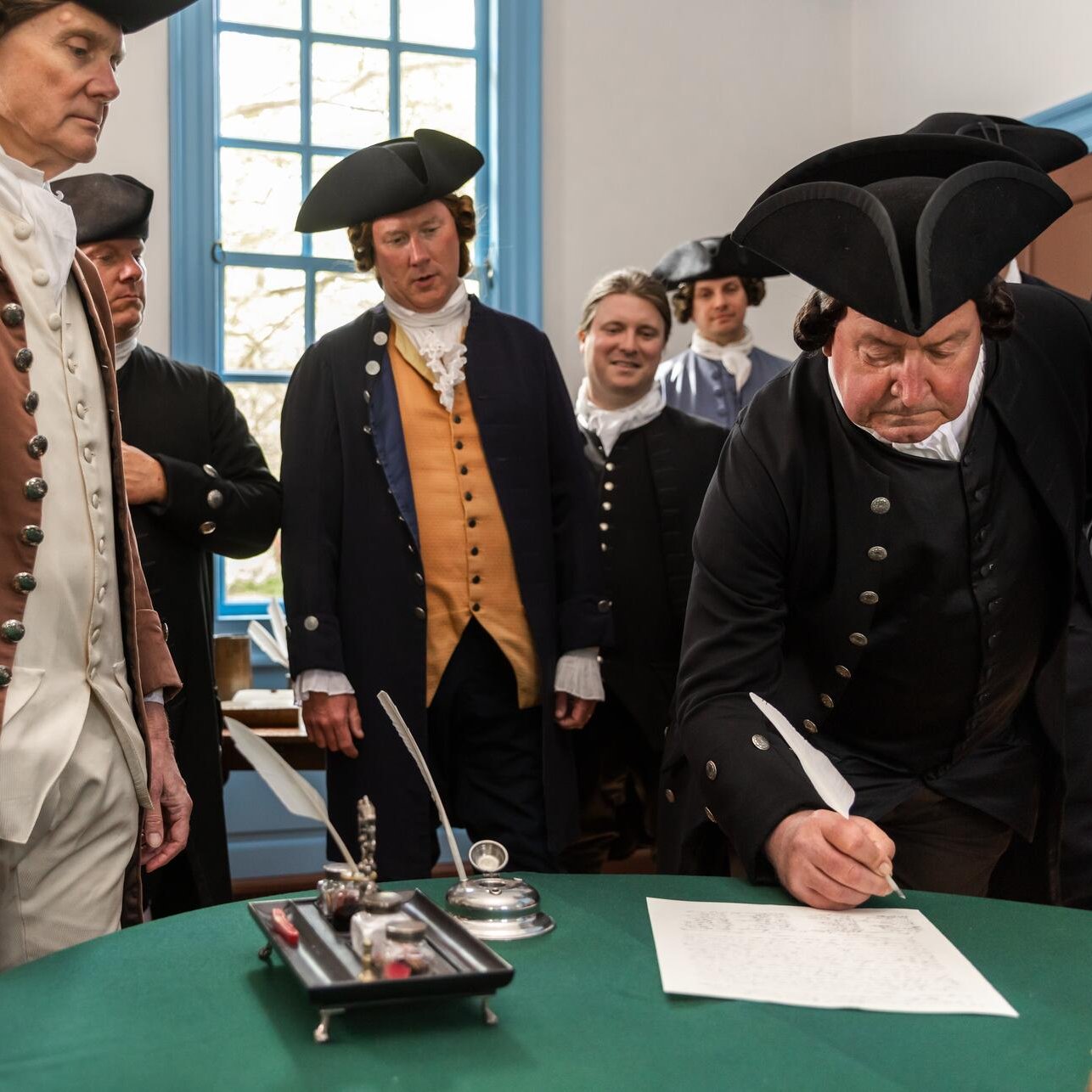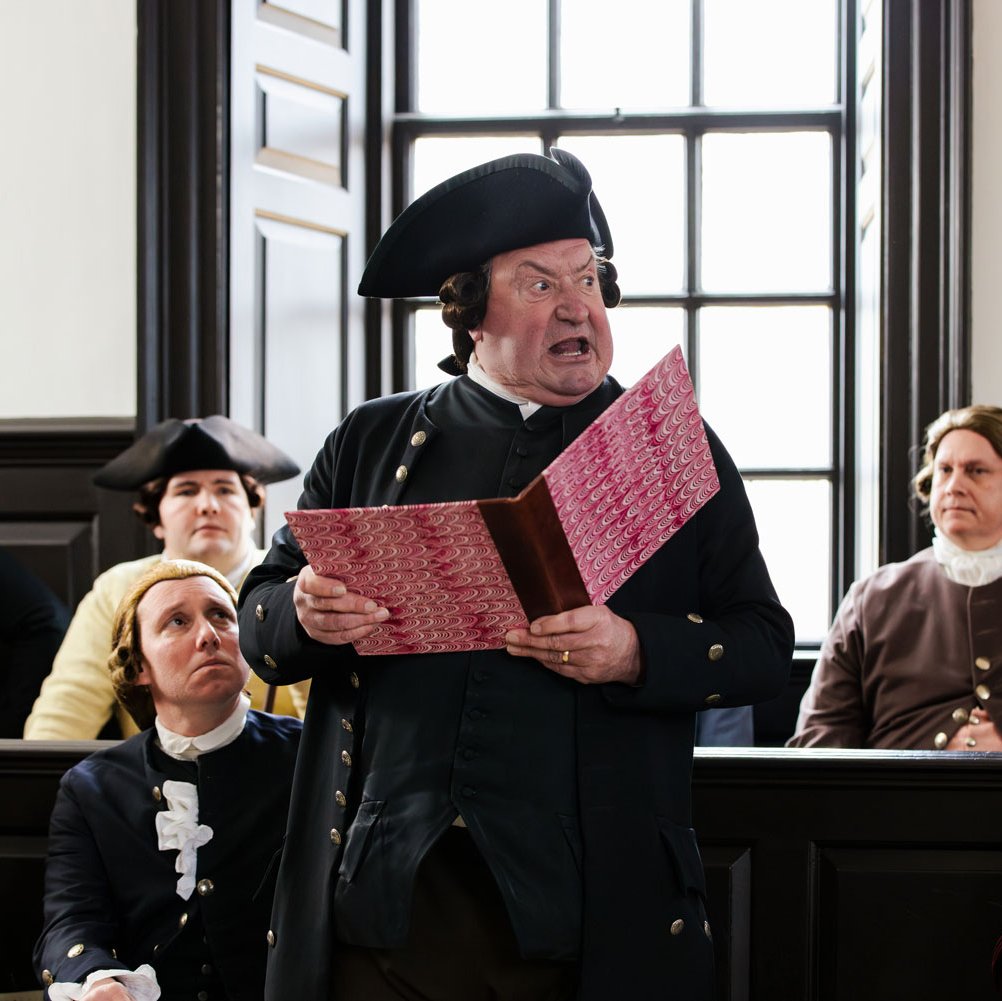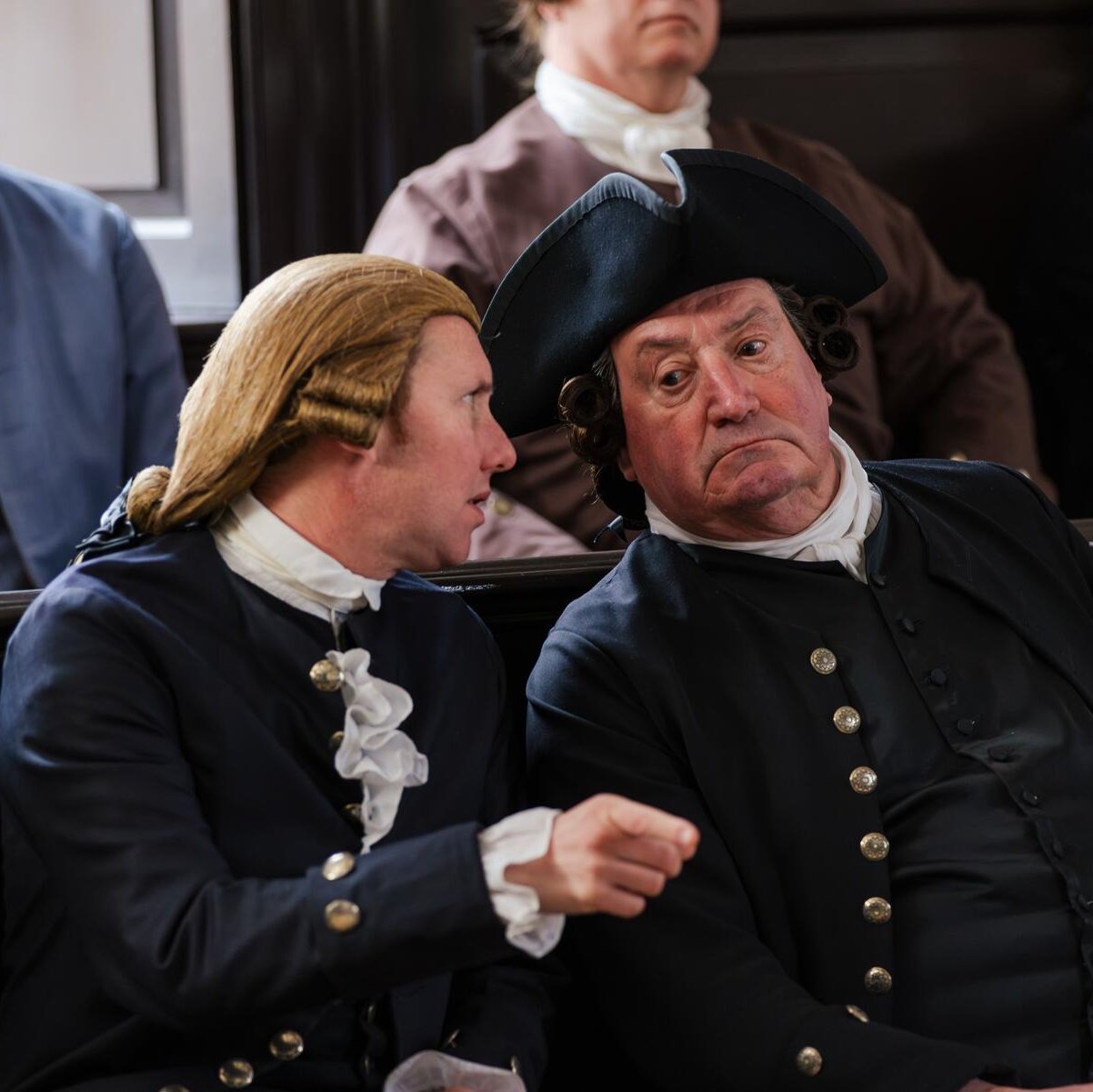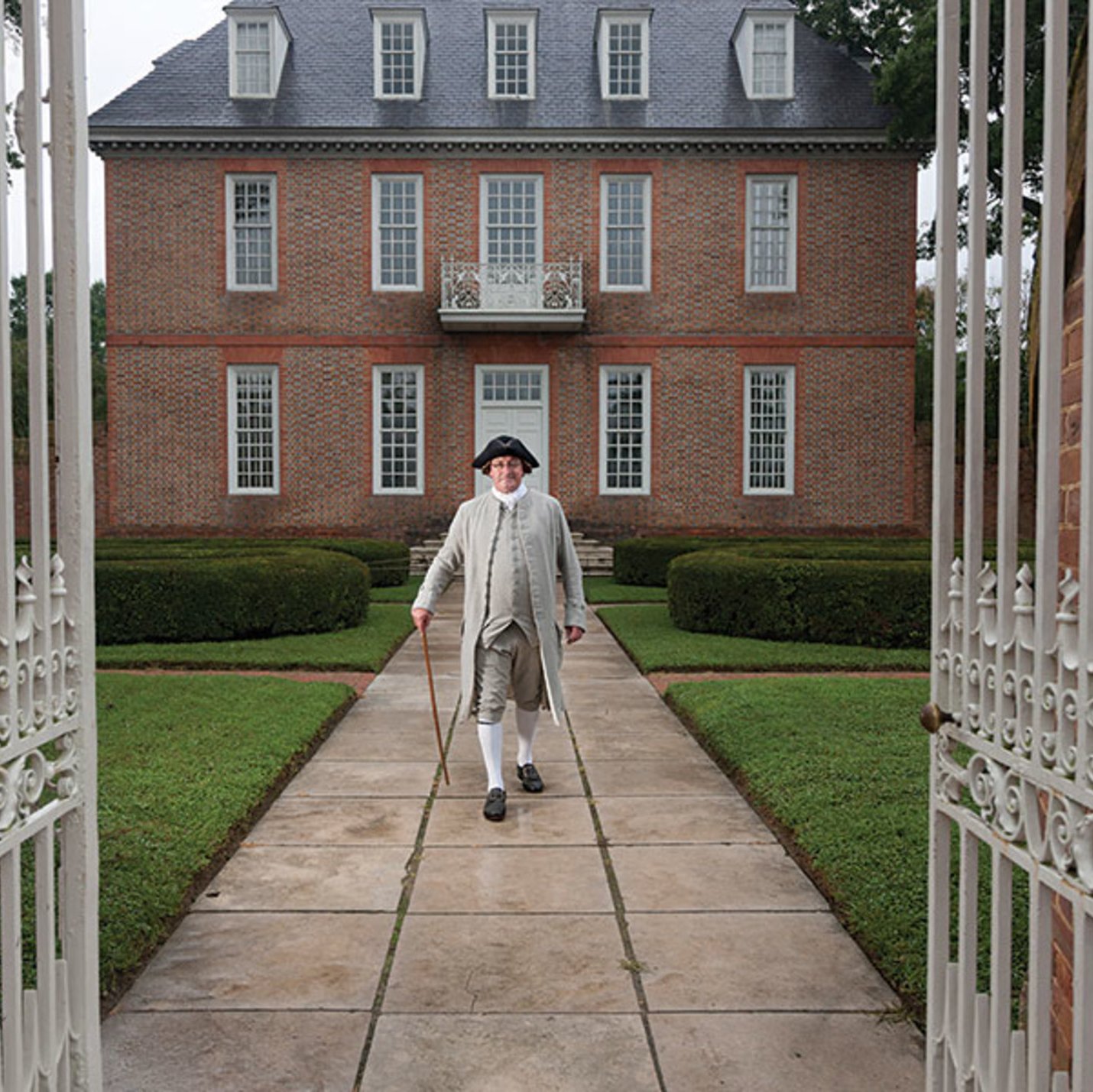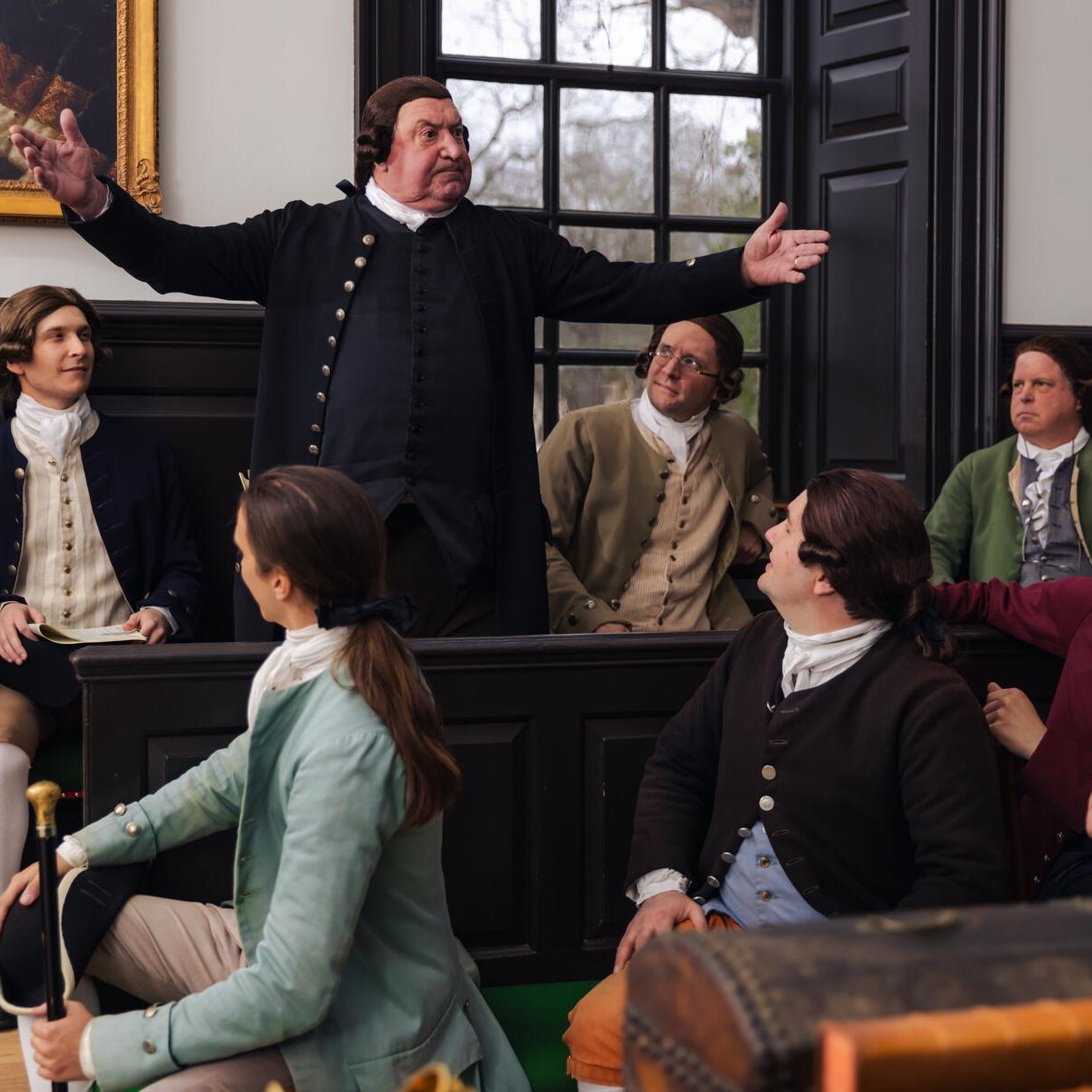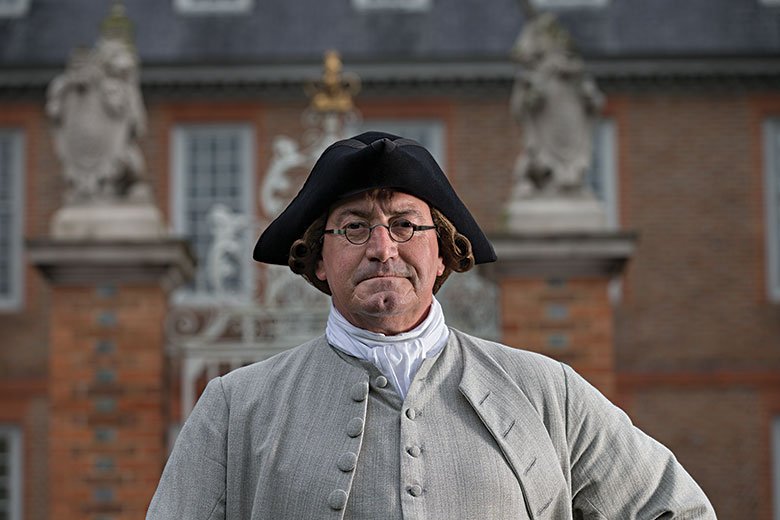
Patrick Henry
A participant in virtually every aspect of the founding of America, Patrick Henry leveraged his eloquence as a Patriot and became the Revolution’s most renowned orator.
On This page
A Virginia Man
Patrick Henry (1736-1799) was born on May 29 in Hanover County, Virginia, to a prosperous Scottish-born planter.
Distinctions between Virginians, Pennsylvanians, New Yorkers, and New Englanders, are no more. I am not a Virginian, but an American.
— George Mason

Fiery Words
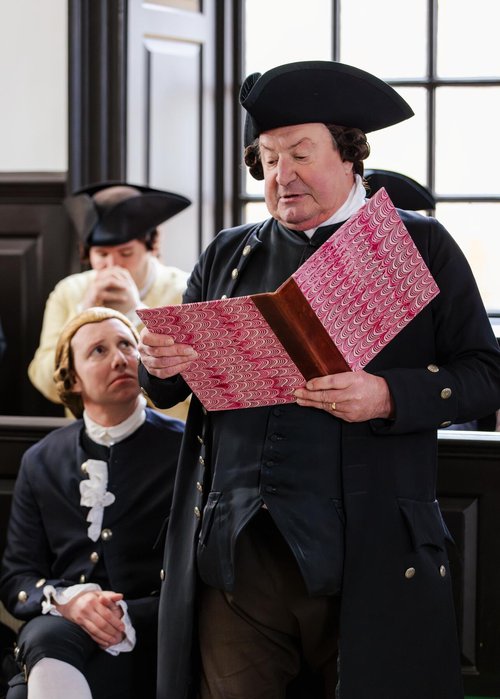
After trying his hand at a number of livelihoods, Henry turned to educating himself in British and colonial law. In April 1760, the Virginia bar admitted Henry and he quickly became known for his oratory, arguing a thousand cases in his first three years. Henry was a 29-year- old freshman, just days into his service in the House of Burgesses in Williamsburg, when his fiery attack on the Stamp Act first lit the fuse of revolution. His Stamp Act Resolves and rhetoric against British tyranny soon became legendary.
Known Passion, Unknown Words
Although his speech at the March 1775 Second Virginia Convention was said to be memorable, historians debate whether or not he used the words “give me liberty or give me death” as his speeches are all reconstructed from memory. He never wrote them down in advance.
Continued Service
Henry served in the Continental Congress and took up residence in the Governor’s Palace after being elected Virginia’s first governor, serving from 1776 to 1779 and 1784 to 1786. Like George Mason, he refused to support the Constitution because it lacked a bill of rights.
Henry married twice, first to Sarah Shelton, and then to Dorothea Dandridge. He fathered 17 children. He died on June 6, 1799.
